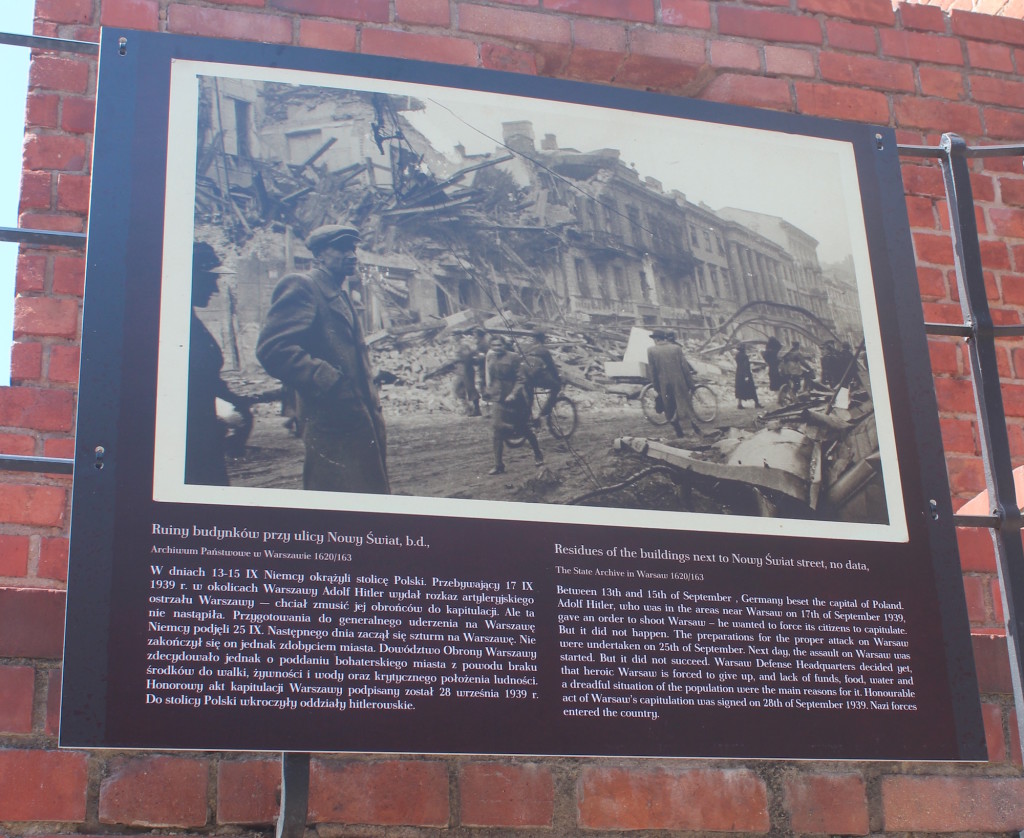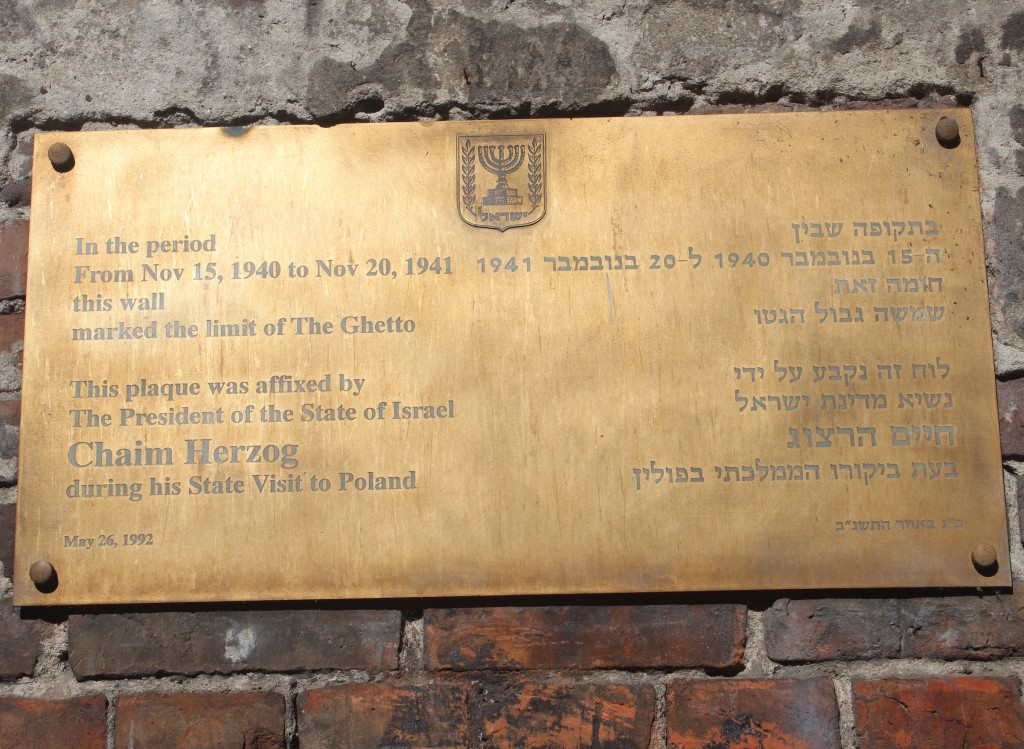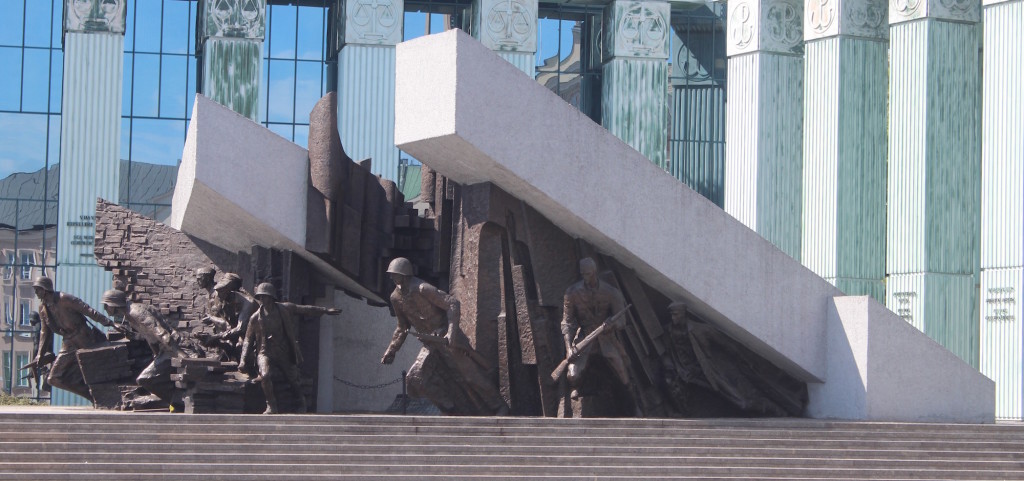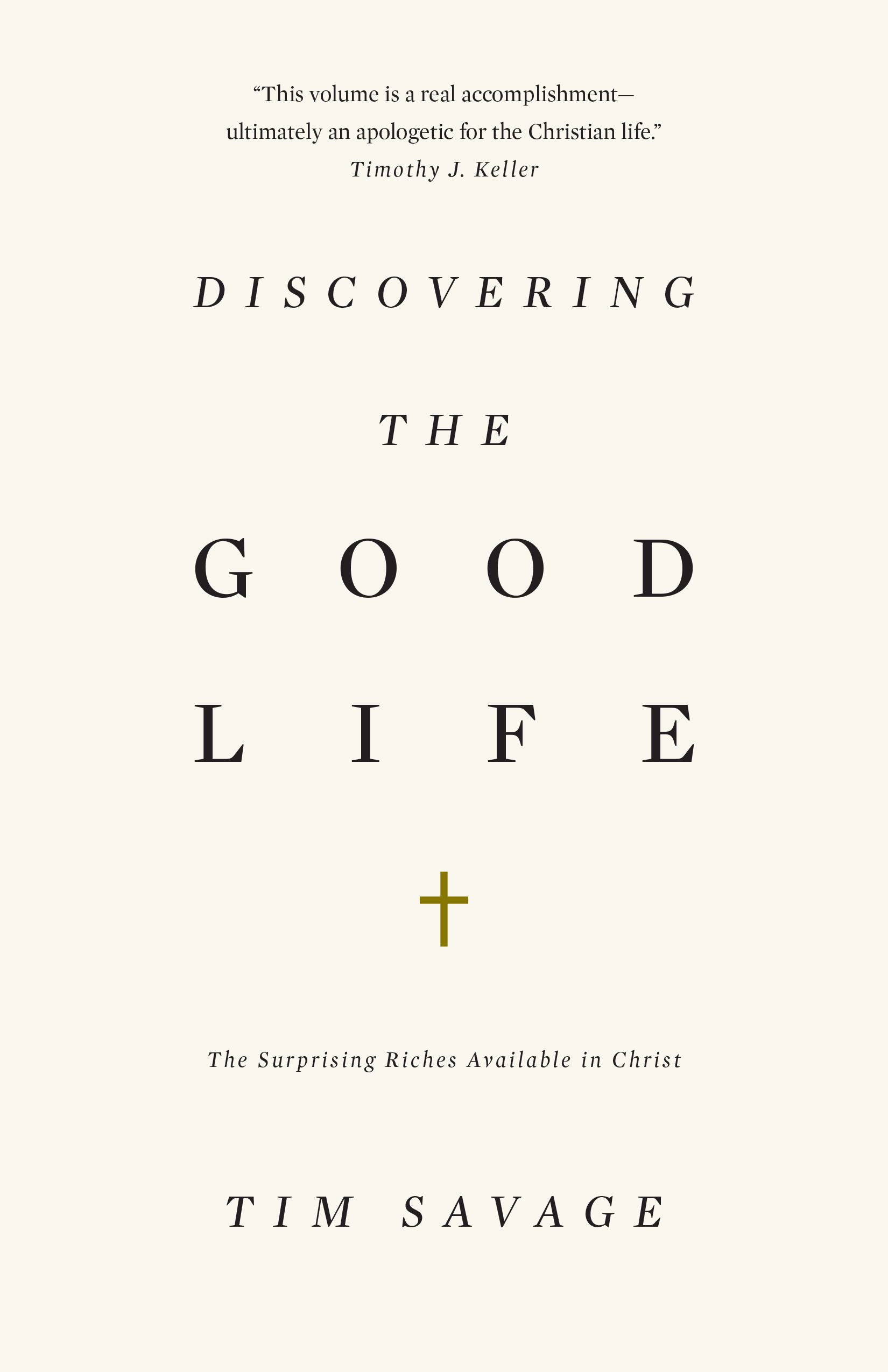Tokens of Love and Gratitude to Christ | Part 2
Originally posted on www.camelbackbible.com
History of Poland

Destruction after Warsaw Uprising 1944
Perhaps more than any other European city, Warsaw is shaped by its past. Everywhere in the capital city monuments rise to commemorate Polish resistance during World War II. The tributes are so ubiquitous that it might seem that Poles are still trying to come to grips with the horrors of the Nazi occupation.
How could it be differently? In 1939, Poland was invaded simultaneously by Germans in the west and Russians in the east, and turned into a killing grounds for foreign powers pursuing their own agendas.
The Poles resisted valiantly, mounting in 1944 the ‘Warsaw Uprising’, in which an ill-equipped army attempted to overthrow Nazi domination. But with the Soviet army, located just across the Vistula River, refusing to support the Polish insurrection, hope was lost and Adolf Hitler gave the order to wipe Warsaw off the face of the map, bombing and burning the city so systematically that it would be uninhabitable for future generations. When the Soviets did at last enter Warsaw, they found a city 90% destroyed, with a mere 1,000 dazed citizens wandering its streets – a city which had boasted 1.3 million pre-war inhabitants.

Memorial plaque to Jewish Ghetto Uprising, on a small section of the Ghetto wall still standing, Warsaw, Poland
A year before the ‘Warsaw Uprising’, the Jewish citizens of Warsaw staged their own insurrection. Having been herded by SS troops into what became known as the Warsaw Ghetto – 400,000 Jews compressed into an impossibly small sector of the city surrounded by walls three meters high – news arrived that the thousands of Jews loaded daily onto trains were actually, contrary to the official line, being shipped to an extermination camp called Treblinka. With their destiny now clear, Ghetto Jews, mostly starving and using make-shift weapons, attacked the Nazis. It was a bold but doomed rebellion, in which the Jews were executed on the spot and the Ghetto razed to the ground.
When in 1945 the Nazis finally capitulated, Russian troops rounded up Polish resistance fighters and charged them with supporting the very Nazis they had so valiantly resisted, shipping them to Siberia, never to be heard from again. In this way the tyrannical dictator Joseph Stalin cleverly eliminated independent Polish thinkers who might pose a threat to his autocratic brand of communism. For the next forty years, the forty years of the Cold War, Polish people were forbidden by the Soviets to pay tribute to the heroism of their own resistance fighters.
Only recently, as the dividing-wall of Europe was torn down, as Soviet Communism was relegated to the ash-heap of history (events due in no small part to two modern Polish resistance fighters, Lech Walesa, president of the anti-communist labor union Solidarity, and Karol Jozef Wojtyla, the first non-Italian pope in 450 years, renamed John Paul II), have Poles been able to celebrate the courage of their countrymen in World War II. (For the stirring story of one such patriot, see the Wikipedia article on Witold Pilecki.)

Monument to Warsaw Uprising, 1944
For Americans such as Lesli, Jon, and me, who have our entire lives enjoyed freedoms of expression and information, it has been bracing to learn about a people who, until lately, have been denied access to their own story.
It is a story to which the Poles are now adding several extraordinary chapters. The city which Hitler consigned to perpetual ruin is now bustling again, with 1.7 million inhabitants. Against all odds, the Poles rebuilt Warsaw. It is a country that, seventy years ago, lost over 6 million of its people to the dual menace of Nazi fascism and Soviet communism, more than one fifth of the population of Poland. Against all odds, the Poles have responded by rebuilding their country, by adopting a market economy, and by becoming the only nation in Europe to escape the recession of 2009.
It was to this city and country I was invited to speak, in seven talks, about the power of God working in the weakness of humans. Pastors and church workers from all parts of Poland gathered together for three days of teaching, some driving many hundred miles to study the rich truths set out by the apostle Paul in 2 Corinthians.
What explains such hunger for the gospel of Jesus Christ?
There are presently 38 million Poles, but only 150,000 Protestants (four-tenths of one percent of the entire population). Of the Protestants, only 6,000 are committed evangelical Christians, about the same number of people as recently convened in Orlando, Florida for the national conference of The Gospel Coalition.
How would a small assembly of pastors and church workers refined by the fires of affliction respond to my talks? How would the Lord answer our prayers for a spiritually fruitful conference for his glory?
Blessings in Christ,
Tim
Read more posts in the series:
- Tokens of Love and Gratitude to Christ | Part 1
- Tokens of Love | Part 3: Through Our Suffering, God Can Work Mightily
- Tokens of Love | Part 4: Freedom in Jesus Christ
- Tokens of Love | Part 5: Poland’s Favorite Sons
- Tokens of Love | Part 6: Peace and Freedom
- Tokens of Love | Part 7: Assurance of Eternal Life
- Tokens of Love | Part 8: Exploring Krakow
- Tokens of Love | Part 9: From Artistry to Depravity
- Tokens of Love | Part 10: The World Slowly Being Transformed into a Wilderness
- Tokens of Love | Part 11: New Life in Christ
- Tokens of Love | Part 12: Reaching Gypsies
- Tokens of Love | Part 13: Grieving the Empty Seats
- Tokens of Love | Part 14: The Greatest Work of All
- Tokens of Love | Part 15: The Kingdom Plans of the Lord
- Tokens of Love | Part 16: Until We Dance at the Foot of God’s Throne
- Tokens of Love | Part 17: Fullness of Life


Add your voice to the conversation: